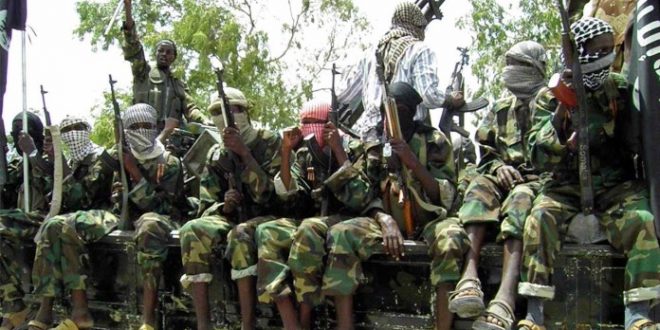By Akanimo Sampson
Since the middle of 2018, the Islamic State in West Africa Province (ISWAP) has continued to ramp up attacks on the military, while the Abubakar Shekau group tends to be hitting softer civilian targets.
Formerly known as Jamā’at Ahl as-Sunnah lid-Da’wah, ISWAP split from the Boko Haram faction headed by long-time leader Shekau in 2016.
Quoting three military and government sources, Reuters, reported that a suicide bomber killed five people, including a Chadian soldier, when she blew herself up on the shores of Lake Chad on August 14.
The sources, according to Reuters, said the attack happened shortly after midnight in the compound of a traditional chieftain in the district of Kaiga-Kindjiria. The attacker walked in and detonated her bomb just as people in the compound were preparing to go to bed, they said, without giving further details.
Lake Chad, which sprawls across Nigeria, Niger, Chad and Cameroon, is a hotbed for Boko Haram and ISWAP. Violence in the region has killed more than 30,000 people and displaced about two million since 2009, when Boko Haram first launched an uprising with the intention of carving out an Islamic caliphate in North-East Nigeria.
Jihadists in the Lake Chad region have routinely ambushed soldiers, opened fire on markets and kidnapped women and children, including nearly 270 schoolgirls in the village of Chibok in 2014, a hundred of whom are still missing.
In June, West African troops killed 42 suspected Islamic State fighters in a battle in the Lake Chad region, the heaviest death toll suffered by the insurgents in the last six months.
But they continue to show themselves capable of devastating hit-and-run attacks. Last month, an attack by suspected Islamists on a group returning from a funeral in Nigeria’s northeastern Borno state killed at least 65 people.
Eight people, including three soldiers, were reportedly killed in jihadist attacks on an army base and village in the troubled North-East ahead of the Eid al-Adha festival, military sources said.
Three troops and three civilians died the previous Saturday when fighters from ISWAP attacked a base in Gubio, a town 80 kilometres from Maiduguri, the bleeding Borno State capital, two sources told AFP, an international news agency.
Three soldiers were killed “defending the base from ISWAP terrorists who wanted to overrun it,” the first source told the news agency. “Three civilians were hit and killed in crossfire,” said the source, an officer who asked not to be identified for fear of punishment.
Two soldiers and six civilians were injured, he said. The jihadists attacked the base in eight pickup trucks fitted with machine guns, leading to a two-hour long battle, said the second source, who gave the same toll.
The attack was repelled with the aid of a fighter jet which deployed two hours into the clashes, said the officer. “The terrorists were pulverised and forced to withdraw. Eleven of them were killed and three of their vehicles were seized,” AFP quoted its source as saying.
ISWAP ransacked the same base in May, killing three soldiers.
In a separate assault on Friday, fighters from rival jihadist faction Boko Haram, allegedly killed two residents and burnt homes in an attack on the village of Ngwom, 14 km from Maiduguri.
Gunmen in pickup trucks stormed the village in a pre-dawn attack, shooting dead two male residents before robbing women of jewelry and torching four houses, anti-Boko Haram militia leader Babakura Kolo said.
“A woman had one of her ears chopped off by the insurgents as punishment for resisting being robbed,” Kolo said. The jihadists attempted to seize a nearby military base after the raid, but were rebuffed following a one-hour gunfight, Kolo and a military source said.
The decade-long insurgency in the North-East has killed over 27,000 people, displaced some two million and spilt over into neighbouring countries. The jihadists are notorious for stepping up attacks during the Eid season, prompting heightened security across the region.
The penultimate Saturday, several soldiers were also wounded when their vehicle hit a mine planted by ISWAP near the border with Niger, military sources, according to an agency report.

